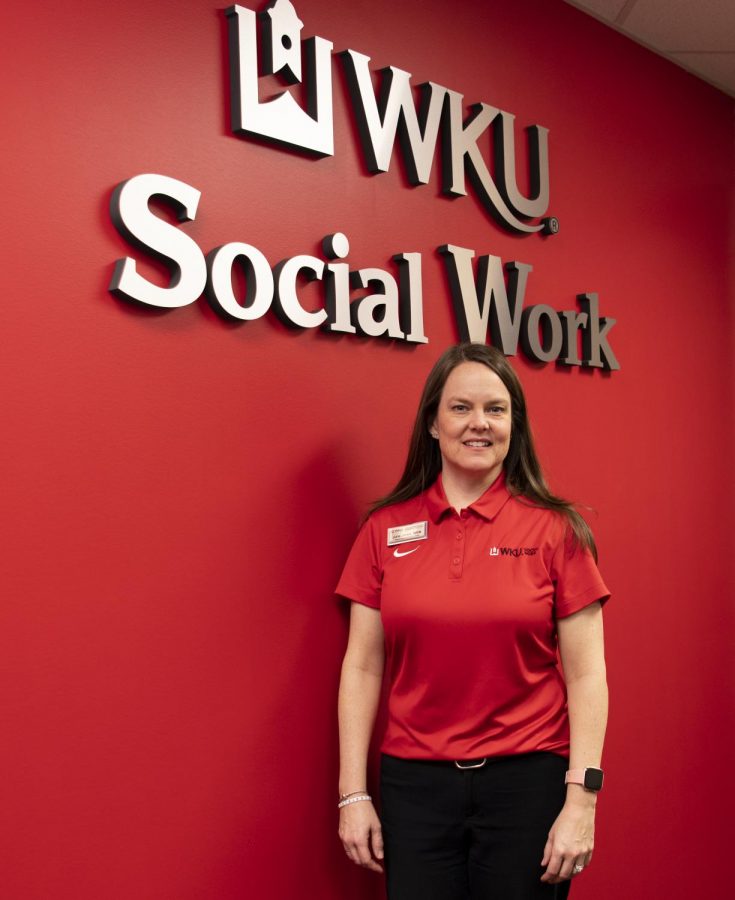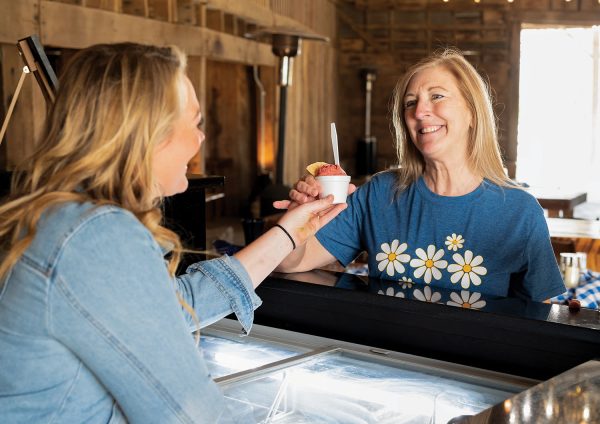WKU celebrates 5th annual Social Work Month
March 3, 2020
The beginning of March marks the beginning of “Social Work Month” — a time to celebrate the social workers in the community and the WKU students studying social work.
“Social workers do so much,” child welfare coordinator Julie Jones said. “It’s such a broad profession, and social workers do so much that the awareness of what social workers do is why Social Work Month is important.”
According to social work department head Patricia Desrosiers, social workers are generally undervalued. Social workers receive small incomes in comparison to the large amount of education required to do their jobs.
“It’s not a profession where you’re going to earn a bunch of money,” Jones admitted. “There’s a quote that floats around: ‘Social workers are in it for the outcome, not the income.’ And that’s very true.”
In response to this under-appreciation of social workers and the importance of the work they do, Jones and Desrosiers both believe Social Work Month is important. March provides an arena for people to celebrate the difficult work that social workers do.
“Social workers’ jobs are very complex because people are complex,” Desrosiers said. “They have respect for everybody’s dignity and self-worth. They work with the people nobody else works with.”
Contrary to the popular belief that all social workers are employed with Child Protective Services and take babies away, Desrosiers joked, social work is a broad profession with many opportunities for its students.
The basic professions of social work include child protective services, working in substance abuse treatment, conducting mental health services, advocacy, working in the school systems and sports arenas as a Licensed Clinical Social Worker and serving the growing aging population.
“Especially with the substance abuse epidemic in our society, there is such a need for social workers,” Jones said. “We’ve got to celebrate social workers because they have very tough jobs serving the public in the manner that they do. It’s very emotionally draining.”
With the work that social workers do being so heavy, Jones said that she hopes her students leave the social work program with an understanding of self-care. Self-care for social workers can include taking time off, picking up hobbies or even pursuing more education.
“Obviously burnout is a big deal,” Jones said. “Part of preventing burnout is making changes and going to different parts of the profession.”
March serves as a time to celebrate the broadness of social work and the beauty of it as a profession, Jones said. Social workers can work in one part of the profession for years, but they can also switch gears to a completely different part of the profession if they decide to do so.
“It’s never a dull or boring profession,” Jones said. “It’s a helping profession—one in which you can help people in so many different areas.”
Social Work Month also serves the purpose of admiring the character of social workers themselves, noting the qualities that they possess as professionals.
“For many social workers, we have a calling,” Jones said. “One of the characteristics of social workers is the passion to help others in ways that we were helped in our past.”
Desrosiers said that a lot of social workers are from backgrounds of poverty or have lived stressful lives, so they know what it’s like to be down-trodden or oppressed. However, being personally motivated to become a social worker is not all that it takes. Social workers face adversities and barriers in their education and professions every day.
Jones, who worked in child protective services for 19 years before coming to WKU, said that social workers are always misconstrued as the bad people.
“Social workers are not always viewed in the light that they should be,” Jones said. “Social workers in CPS do so many good things everyday for families.”
Painting social workers in a good light is one of the focuses of WKU’s social work program. Jones, who graduated with a Master of Social Work degree from WKU, said that this is one of the things that pulls students into the program.
“The draw for me was the faculty that was so passionate in social work,” Jones said. “Our faculty is so amazing and still does so much within the community to give back. Their passion is a big part of pulling students in.”
Not only is the faculty unique, but WKU’s Department of Social Work offers two different programs: the bachelor’s program and the master’s program. While the undergraduate program has a unique emphasis on social justice, the master’s program is the really unique part of WKU.
“We have a unique specialty area of advanced generalist practitioner in rural settings,” Desrosiers said. “Most people don’t look at rural settings. Not a lot of programs have an advanced generalist specialization.”
Desrosiers explained that the MSW is complicated, but it means that the students can work across all levels and systems. Students will be able to get careers working with individuals, groups, state legislators or even federal policymakers.
Social workers work with their clients, not at them, which is why most social work students at WKU choose to pair their degree with minors or certificates in gender and women’s studies, clinical and community behavioral health or family home visiting, according to WKU’s social work website.
“It depends on what job students are looking to get when they graduate,” Desrosiers said. “If you’re going to work in domestic violence, it’s a very good idea to know about the criminal justice system. The way to do that is to get a degree in criminology or sociology.”
WKU started celebrating its social work students for the work that they do within the community four years ago. Desrosiers and the rest of the faculty have planned for this Social Work Month to be full of self-care.
“Social work month is important to recognize what we do and get the awareness out to society of everything that we do,” Jones said.
Features reporter Julianna Lowe can be reached at [email protected]. edu.




















![Megan Inman of Tennessee cries after embracing Drag performer and transgender advocate Jasmine St. James at the 9th Annual WKU Housing and Residence Life Drag Show at Knicely Conference Center on April 4, 2024. “[The community] was so warm and welcoming when I came out, if it wasn’t for the queens I wouldn’t be here,” Inman said.](https://wkuherald.com/wp-content/uploads/2024/04/smith_von_drag_3-600x419.jpg)





